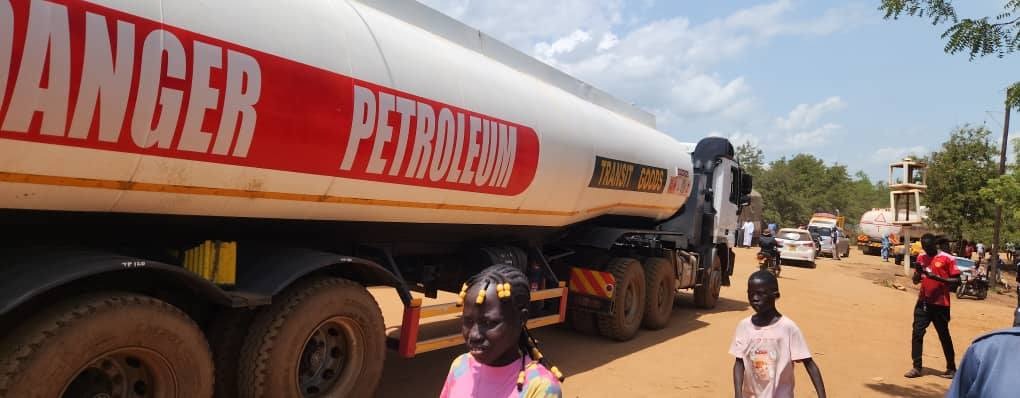
South Sudan National Bureau of Standards (SSNBS) has intercepted a consignment of 11 trucks with substandard fuel at the Nimule border point and ordered their return to the country of origin.
The trucks, attempting to enter South Sudan via the Nimule road on Monday, were stopped after the fuel was found to be substandard and non-compliant with relevant East African standards.
According to a statement obtained by Standard Zone News, the interception occurred during a routine inspection by the SSNBS at the Port of Entry
“The South Sudan National Bureau of Standards (SSNBS), in line with its mandate under the National Bureau of Standards Act, 2012, has intercepted a consignment of 11 fuel trucks at the Nimule Port of Entry during a routine inspection,” the statement read.
Following assessment procedures and laboratory analysis conducted by the Bureau, the fuel failed to meet the required safety and performance specifications.
SSNBS emphasized that the decision to turn back the trucks was made to protect public health, safeguard the environment, and ensure consumer safety.
“Following the Bureau’s mandate to safeguard public health, protect the environment, and ensure consumer safety, the decision was made to re-export the substandard fuel to its country of origin,” the statement affirmed.
SSNBS reiterated its commitment to ensuring that only products meeting quality assurance and national standards are allowed into the South Sudanese market.
“We extend our gratitude to our enforcement partners, stakeholders, and the public for their continued cooperation and support in upholding national standards.”
The Nimule border point has been one of the locations where the SSNBS had frequently intercepted substandard goods from neighboring East African countries.
The bureau said these ongoing efforts are part of the bureau’s mandate to enforce strict import quality standards and prevent potentially harmful or ineffective products from entering the local market.
Last month, the SSNBS ordered the return of a consignment of six trucks carrying 3,840 bags of sorghum to their country of origin after being found to be of substandard quality and unfit for human consumption.

